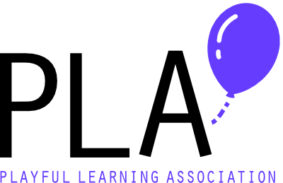Why So Serious? Engaging PhD Students in Playful Learning
Lead Author: Dr Abbie Edgar
Additional authors: Dr Fabiana Fausto McCracken
Timetable: Thursday Session 7: 15:00-15:45, Gallery Room 2
Description:
As discussed by Kollars and Rosen (2017), research skills courses are the ‘double trouble’
of academia – loathed by both educators and students. Yet, let’s be real, mastering research
skills is like unlocking a secret level in the game of life, crucial for both academic success
and career growth. The real challenge? Sparking enthusiasm in students to tackle research
skills training (Earley, 2014). Abbott (2020; 2019) has pointed out that postgraduates have it
even tougher. They’re expected to deftly avoid snakes while trying to climb the ladder by
mastering applied research skills while balancing their independent projects.
As Smith (2019: 67) highlighted, “play is too important not to be taken seriously by Higher
Education.” We believe that a dash of playfulness can work wonders, and we argue that it
has a crucial role in motivating PhD students to develop their skills in a non-intimidating
environment. In this session, we will highlight some of the creative and playful methods we
have used to design our Postgraduate Research Development Programme.
Format of the session and activities:
The session will be interactive throughout, with time allocated for group discussion and
individual reflection.
Agenda:
1. Introduction (5 minutes total)
Facilitators will kick things off with a warm welcome and a dash of excitement.
2. Preparing PhD Students for Key Milestones (15 minutes total)
• Visual Stimuli and Individual Reflection
Review two activities in groups and let your creativity shine (10 minutes)
• Group 1 & 2: Review Activity 1
• Group 3 & 4: Review Activity 2
• Reflective Feedback Worksheet
Discuss your reflections and recommendations with a touch of imagination (5 minutes)
3. Developing PhD Students’ Presentation Planning Skills (20 minutes total)
• Group Task: Using LEGO to Discuss the ‘7 Steps of Presentations’ (5 minutes)
The facilitator will introduce this creative task.
• Hands-On Task (10 minutes)
Dive into the world of LEGO and construct your presentation plans.
• Feedback Session (5 minutes)
Display your LEGO creations and share your insights on the applicability to your own
context.
4. Discussion and Close (5 minutes total)
Reflective Questions:
• What challenges have you faced when designing playful activities for a traditionally
“serious” learning environment, e.g. doctoral training?
• How do you balance academic rigour and a sense of play in your activities?
• What metrics do you use to measure the impact of playful activities on your students’
progress?
• How can you foster an environment where postgraduate students feel comfortable
engaging in playful activities?
Wrap up with some thought-provoking questions and a lively discussion.
The goals of this session are for you to:
• Master your creativity through playful skill ‘levels’ to generate ideas for your own context
• Challenge your critical thinking about the magic of playfulness within higher education
References, web links and other resources:
Abbott, D. (2019) ‘Game-based learning for postgraduates: An empirical study of an educational game to teach research skills’, Higher Education Pedagogies, 4(1).
Abbott, D. (2020) ‘Beyond Vicarious Learning: Embedding Dialogic Learning into Educational Games’, in Fotaris, P. (ed.) Proceedings of the 14th International Conference on Game Based Learning. Brighton: Academic Conferences, pp. 1–10.
Kollars, N. and Rosen, A. M. (2017) ‘Who’s Afraid of the Big Bad Methods? Methodological Games and Role Play’, Journal of Political Science Education, 13(3), pp. 333–345.
Smith, S. (2019) “Exploration: Play in Practice – Innovation Through Play in the Postgraduate Curriculum”. In: James, A.; Nerantzi, C. The Power of Play in Higher Education: Creativity in Tertiary Learning. London: Palgrave Macmillan, pp. 57-67.
